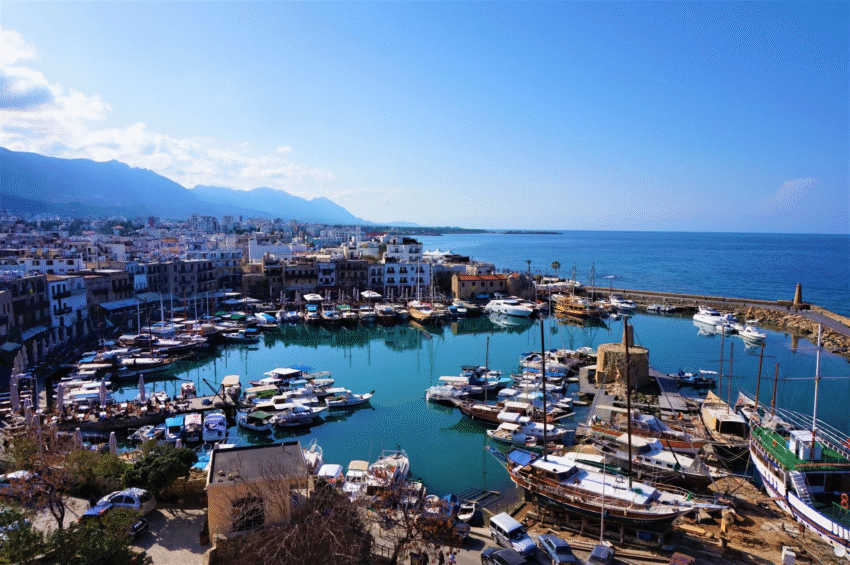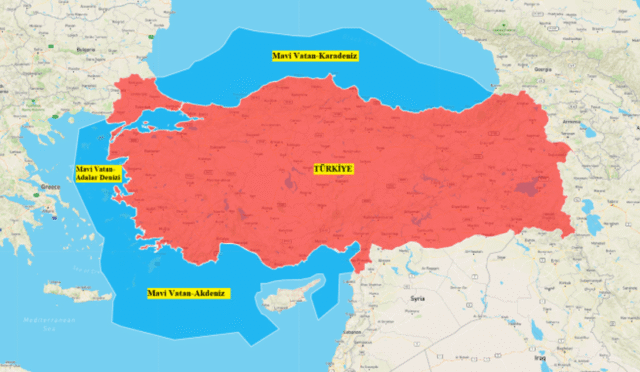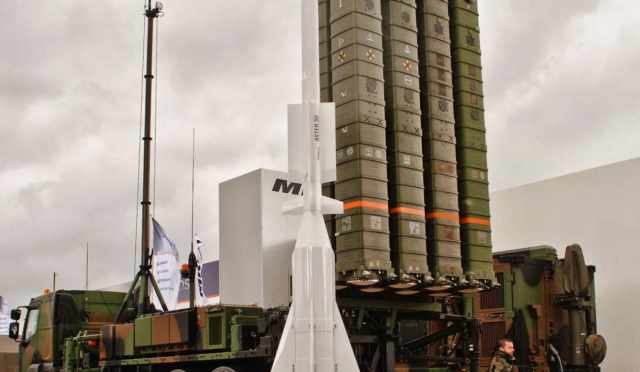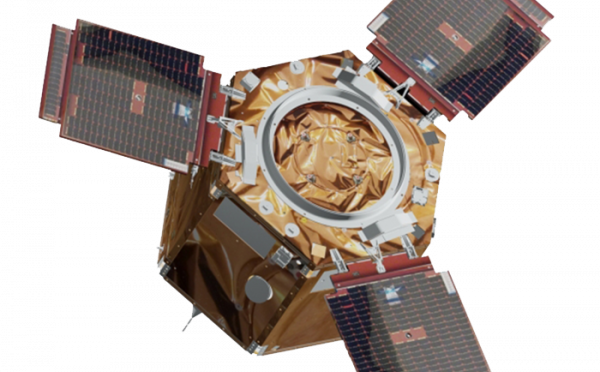**The geopolitical landscape in the Eastern Mediterranean is undergoing a significant transformation, with Northern Cyprus taking center stage as a focal point of tension.** The Turkish Republic of Northern Cyprus (TRNC) has emerged as a key concern for the Israeli state, particularly in light of the ongoing violence and historical grievances in Gaza. For decades, the region has been a chessboard for colonial ambitions, and Israel’s aggressive policies have often extended their reach into neighboring geopolitical territories like Cyprus.
The interest of Zionists in Cyprus is not a recent phenomenon. At the outset of the 20th century, following the Balfour Declaration of 1917, waves of Jewish migration to the island occurred as Jews sought refuge and opportunity. At that time, Palestinian territory was under Ottoman rule, prompting many to temporarily settle in Cyprus. However, with the conclusion of World War I and the Ottoman Empire’s withdrawal, these Jewish communities began moving towards Palestine, altering the fate of Cyprus as a location of transient interest.
Historical Context and Modern Implications
In recent years, Cyprus has resurfaced in global discussions, primarily due to large-scale land acquisitions and housing developments by Jewish interests. Yet, the narrative has shifted. Rather than being viewed solely as an opportunity, Cyprus is now perceived as a threat by Israel, particularly in the context of Turkey’s strategic moves aimed at countering Zionist encroachment. The growing disquiet among Israeli officials stems from Turkey’s efforts to assert its influence over Cyprus, which they view as a direct challenge to their regional ambitions.
The geopolitical calculus surrounding Cyprus is emblematic of a broader struggle. While Israel has engaged in military actions against its neighbors—Lebanon, Yemen, Iran, and Syria—its primary concern remains the possibility of Turkey emerging as a formidable adversary in the Middle East. Israeli leadership perceives a powerful Turkey as the most significant impediment to their vision of a Greater Israel.
Türkiye’s Rise, Israel’s Decline
Strikingly, Israel’s surveillance of Turkey’s advancements in the defense sector has revealed a turn of fortunes in their strategy. Projects previously devised to isolate Turkey within the Eastern Mediterranean have found Israel on the defensive. Alliances that were intended to encircle Turkey—such as those with France, the UAE, Egypt, the USA, Greece, and Greek Cyprus—are faltering, as these nations now find common ground with Turkey.
The weakening of Israel’s regional alliances is underscored by France’s recent recognition of the State of Palestine and the United States’ withdrawal from the EASTMED project targeting Turkey. Today, Israel stands largely alone, reliant on its alliances with Greece and Greek Cyprus. Israeli concern over Turkey’s actions in the TRNC has escalated to the extent that some Jewish writers are contemplating emergency operations to reclaim control over Northern Cyprus. The anxiety amongst Zionist circles reflects the depth of Turkey’s strategic military maneuvers on the island, which they perceive as a grave threat.
TRNC as a Growing Concern for Israel
Recent commentary from Israeli media, particularly by Shay Gal of Israel Hayom, emphasizes the growing peril of Turkish influence in Northern Cyprus. His analysis suggests that Israel’s longstanding strategy to encircle Turkey has faltered, now casting Turkey as a formidable presence that has effectively surrounded Israel from all sides through their control of the TRNC. The establishment of modern military assets on the island, including advanced weaponry, poses strategic challenges and sets off alarms within Israeli defense circles.
Gal expresses profound concerns over Turkey’s military capabilities in the TRNC, suggesting that the region has become a forward base for Turkish operations. The presence of advanced weapon systems and intelligence facilities capable of intercepting Israeli communications exacerbates these fears, leading to discussions regarding the potential establishment of a non-permissive environment for Turkey’s military operations.
UCAV and Missile Bases: A New Threat to Israel from the TRNC
The developments at Geçitkale Airport, now transformed into a hub for Unmanned Combat Aerial Vehicles (UCAVs), signal an alarming trend for Israel. Bayraktar TB2 UCAVs have been stationed in Northern Cyprus since 2021, with Akıncı UCAVs following suit in 2024. These drone systems are not only purposed for reconnaissance but are also poised to target Israeli maritime and strategic assets in a potential escalation.
In addition to drones, Turkey’s advanced missile systems, particularly the ATMACA anti-ship missile, pose severe risks to Israeli naval operations. With a range of over 200 kilometers, these missiles could effectively neutralize crucial Israeli deployments. Moreover, the TAYFUN missile represents an unprecedented threat, capable of reaching deep into Israeli territory with the capability to strike major cities. Such developments have led to recommendations for preemptive Israeli military actions aimed at neutralizing these threats in Northern Cyprus.
Strategic Recommendations and Future Implications
In light of these developments, Shay Gal has suggested that Israel coordinate an emergency operation with Greece and Cyprus to reclaim control over Northern Cyprus. Dubbed “Poseidon’s Wrath,” this strategy aims to dismantle Turkish military infrastructure and assert Cypriot sovereignty. Yet, the feasibility of such military operations remains questionable, given Turkey’s established presence on the island.
This strategic predicament for Israel may echo the broader challenges they face in the region, where diplomatic and military objectives appear increasingly misaligned. The expectation is that Turkey’s influence from the TRNC will not only persist but grow, potentially reshaping the dynamics of power in the Eastern Mediterranean and beyond.







